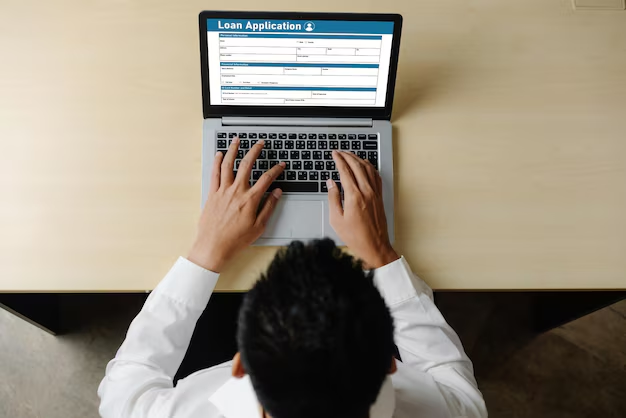Your Guide to How Do I Make An Appointment With The Irs
What You Get:
Free Guide
Free, helpful information about IRS FAQ and related How Do I Make An Appointment With The Irs topics.
Helpful Information
Get clear and easy-to-understand details about How Do I Make An Appointment With The Irs topics and resources.
Personalized Offers
Answer a few optional questions to receive offers or information related to IRS FAQ. The survey is optional and not required to access your free guide.
Navigating IRS Appointments: Your Comprehensive Guide
Dealing with the IRS can sometimes feel like maneuvering through a dense forest—a little overwhelming and hard to know which path to take. Whether you have a tax question, need to resolve an issue, or require assistance, knowing how to schedule an appointment with the IRS becomes crucial. Let's explore how to make an appointment with the IRS and what to expect during this process.
Understanding Why You Might Need an IRS Appointment
Before diving into the "how," it's essential to understand the "why." You may need an appointment with the IRS for various reasons, such as:
- Resolving Tax Disputes: Any misunderstandings or disagreements over tax calculations can require face-to-face discussion.
- Clarifying Notices: If you've received a notice and need a more detailed explanation, an appointment helps provide clarity.
- Taxpayer Assistance: Assistance with tax preparation, queries about owed taxes, or payment plans all necessitate a personal engagement.
Initiating the Appointment Process
Online Resources & Phone Contact
Most inquiries and issues can be initially addressed by accessing IRS online resources. If further attention is necessary, the next step involves contacting them by phone. The IRS website provides a detailed list of topics and contact numbers to direct you to the appropriate department.
Identifying the Need for an In-Person Appointment
After exploring online avenues and discussing via phone, it's possible to determine the requirement for an in-person appointment. The IRS offers Taxpayer Assistance Centers (TACs) where face-to-face appointments can occur after scheduling.
How to Schedule an Appointment:
- Contact by Phone: Call the IRS at 1-844-545-5640 to schedule an appointment at a nearby TAC.
- Provide Personal Details: Be ready to share details like your name, address, contact number, and specific tax issues.
- Select a Convenient Location: Based on your address, choose a TAC location most convenient for you.
- Pick a Date: Availability can vary, so be open to flexible dates.
- Confirmation: Once scheduled, a confirmation detailing the time and location will be provided, usually via email.
Preparing for Your IRS Appointment
Gathering Necessary Documentation
A smooth and productive appointment requires preparation. Here's what you'll need:
- Identification: A government-issued ID, such as a driver's license or passport.
- Tax Documents: Depending on the issue, this can include W-2s, previous tax returns, correspondence from the IRS, and any relevant financial records.
- Written Queries: Clearly write down all questions or issues you wish to address.
Arriving on Time
Plan to arrive at your appointment a few minutes early. This helps you settle in, gather your thoughts, and review your documents before meeting with an IRS representative.
What to Expect During the Appointment
Upon arrival, check in at the appointed counter and present your ID. The meeting provides an opportunity to discuss your matters in detail and seek guidance from IRS officials. Be ready to:
- Communicate clearly about your concerns and questions.
- Take notes for future reference.
- Request any paperwork or documentation needed to finalize or advance your case.
Alternatives to In-Person Appointments
Virtual Assistance
For increasing convenience, the IRS has expanded its virtual assistance options:
- Videoconferencing: Some issues can be addressed via secure video calls.
- IRS2Go App: Access useful resources and updates through the IRS's mobile app.
Third-Party Assistance
Consider utilizing professional tax assistants or consultants who can provide expert advice and act on your behalf, reducing the need for personal visits to IRS offices.
Summary: Quick Steps to Schedule and Prepare for Your IRS Appointment
Here's a quick recap to streamline your appointment process:
- 📞 Call 1-844-545-5640 to initiate your appointment.
- 📅 Schedule at a convenient Taxpayer Assistance Center.
- 🗂 Prepare Documents: Gather ID, past returns, and financial information.
- 📋 List Questions to discuss during your visit.
- ⏰ Arrive Early: Ensure you have ample time to settle and prep.
- 👨💼 Consider Alternatives: Explore virtual options or professional help.
Making the Most Out of IRS Interactions
A strategic approach to dealing with the IRS can save you time and stress. Whether through initial online inquiries, phone conversations, or scheduled appointments, understanding how to navigate these services is fundamental. By taking advantage of both in-person and virtual resources, you can address tax issues comprehensively and efficiently.
When it comes to sorting through tax-related concerns, being proactive and well-prepared can make all the difference—transforming an intimidating process into a manageable one.
What You Get:
Free IRS FAQ Guide
Free, helpful information about How Do I Make An Appointment With The Irs and related resources.

Helpful Information
Get clear, easy-to-understand details about How Do I Make An Appointment With The Irs topics.

Optional Personalized Offers
Answer a few optional questions to see offers or information related to IRS FAQ. Participation is not required to get your free guide.


Discover More
- Are Irs Economic
- Are Irs Economic Impact Payments Still Available
- Are We Getting Ctc Payments In 2024 Irs
- Can Form 8822 Be Faxed To Irs
- Can I Brown Act Irs
- Can I Call The Irs
- Can I Edit Any Irs Payment After I Did It
- Can I Go To Irs For Support
- Can I Have The Irs Apply My Overpayment If Divorced
- Can I Make Payments To The Irs
